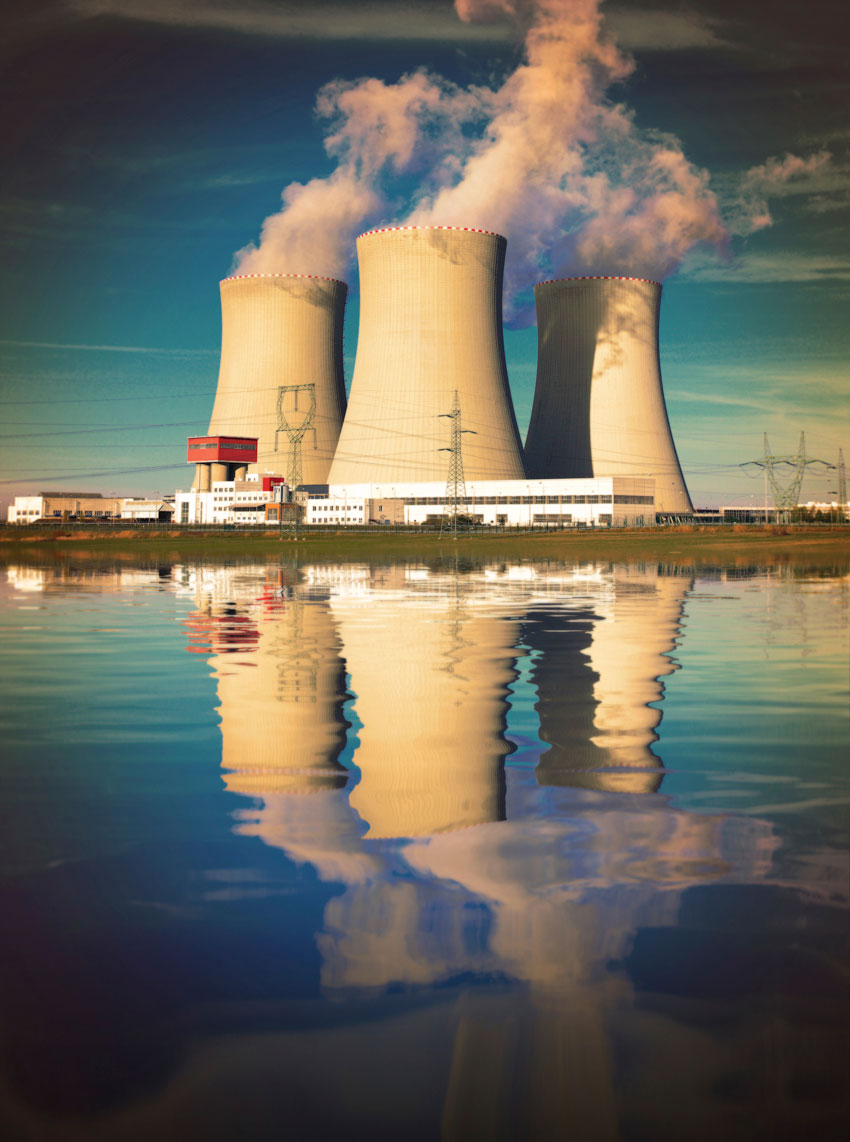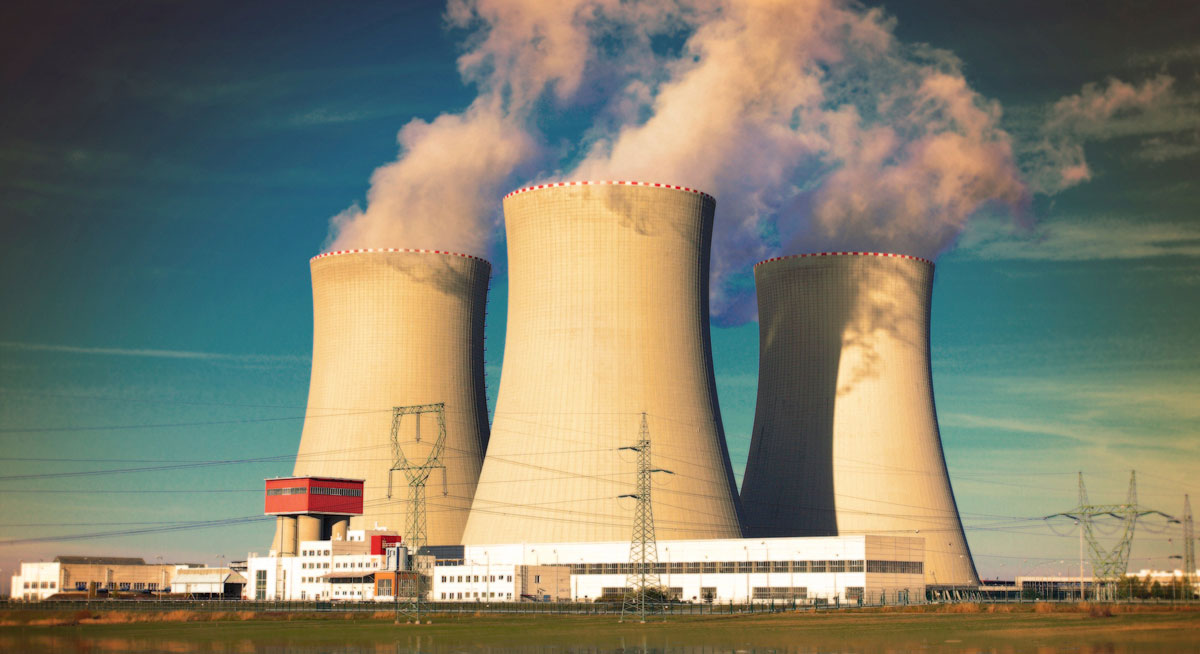INDIA LOOKS TO ADD TO ITS NUCLEAR POWER CAPACITY

Despite the efforts of Prime Minister Narendra Modi, India has not been awarded membership of the coveted Nuclear Suppliers Group. The country, however, is making some progress in making atomic power as an important source of electricity in its energy mix, writes Siddharth Srivastava. – @Siliconeer #Siliconeer #narendramodi #narendramodi @namo #namo #NSG #IndiaNSGBid
The second unit of the Russia-backed Kudankulam Nuclear Power Plant in Tamil Nadu went critical recently. Commercial generation is expected to begin by the end of this year, raising India’s nuclear generation capacity from 5580 MW to 6580 MW. The 1000 MW first unit of KNPP is already functional. India is targeting to generate 63,000 MW of atomic power by 2032.
KNPP unit-1 commenced commercial operation in December 2014 after attaining criticality in July 2013, though the plant has suffered several breakdowns and repairs since. Progress of unit-2 is expected to be smoother due to the learning process of unit-1. The KNPP project is being built in collaboration with Russia that is expected to play a defining role in India’s efforts to produce atomic power. France and USA are also negotiating to build nuclear power plants in India.
USA, France in the mix
France’s Electricite de France recently handed a fresh techno-commercial proposal to India to construct six NPPs in Jaitapur, Maharashtra. A team of EDF executives has been in talks with India’s ministry of external affairs and state-owned Nuclear Power Corporation of India.
“It’s now up to the NPCIL to decide,” a top unnamed official has been quoted by PTI recently. The proposal includes localization of technology and negotiating for all six reactors together as against two earlier to bring down cost. The Indian government has been pushing for pro-domestic industry clauses in contracts in keeping with Modi’s “Make in India” vision aimed at creating employment and self-reliance in manufacturing to take on China. According to PTI, during talks, EDF has raised concerns about India’s civil liability law and sought “same level of protection” offered to companies globally. “France is a party to Vienna Convention on Civil Liability for Nuclear Damage. We want similar binding conditions in the Jaitapur contract. All these steps will help us bring nuclear industry players from France to India,” an EDF official said.
The French side, however, appreciated steps taken by New Delhi in this regard that include formation of the Nuclear Insurance Pool and ratification of Convention on Supplementary Compensation for Nuclear Damage. In what is a big relief to foreign nuclear plant suppliers, Indian NPP’s that function under NPCIL have been insured as per provisions of the Civil Liability for Nuclear Damage Act. “We recently got the insurance policy covering all our atomic power plants. The total premium came around Rs. 1 billion for a risk cover of Rs. 15 billion,” S.K. Sharma, chairman and MD, NPCIL, said in July. The move protects foreign suppliers against liabilities in case of an accident at a NPP and has been a major obstacle to investment and progress.
U.S.’s Westinghouse Electric has, meanwhile, been in “advanced discussions” with New Delhi to build six NPPs. USA and India signed the civil nuclear deal in 2008, but there are no agreements till now to build any NPPs due to multiple concerns about liability, safety and availability of land. Progress to build the six AP-1000 NPPs originally planned in Gujarat, has been stuck due to local opposition to acquisition of land for the project. However, a solution has now been found by shifting the project to Kowada in Srikakulam district in Andhra Pradesh where the land is being formally purchased by the NPCIL that will operate the project.
India powering ahead
Atomic power apart, the Modi government is also pushing forward with the overall reforms of the power sector that affects the entire gamut of thermal, nuclear, hydro and renewable generation. Earlier this month Madhya Pradesh and Puducherry joined New Delhi’s Ujjwal Discom Assurance Yojana scheme for revival of debt-stressed power distribution companies (discoms).
Manipur became the 14th state to join UDAY prior to the above two. States that have joined include Jharkhand, Bihar, Chhattisgarh, Gujarat, Jammu and Kashmir, Haryana, Punjab, Rajasthan, Karnataka, Uttar Pradesh and Goa. UDAY aims to re-structure state-owned discoms to improve their financial health and efficiency by ridding their accumulated debt.
Reforms of discoms are crucial for India to achieve its aim of power for all. According to latest official figures, India’s overall power deficit was 0.9% in the April-June quarter. New Delhi is targeting 1.1% overall electricity surplus during this fiscal. These figures are, however, misleading as demand estimation is based on consumers who are connected to the grid.
Over 300 million people in India do not have access to electricity due to which India’s per capita power consumption is significantly lower than the world average. Meanwhile, power cuts are rampant due to weak transmission and distribution networks. To add to the problems, the grid is under-utilized despite availability of power as discoms are unable to buy electricity due to their poor financial health. It is in this context that reforms of discoms under UDAY is crucial to address the peculiar Indian situation wherein excess generation capacity co-exists with power cuts, irregular supply or total absence of electricity to large swathes of the population.


